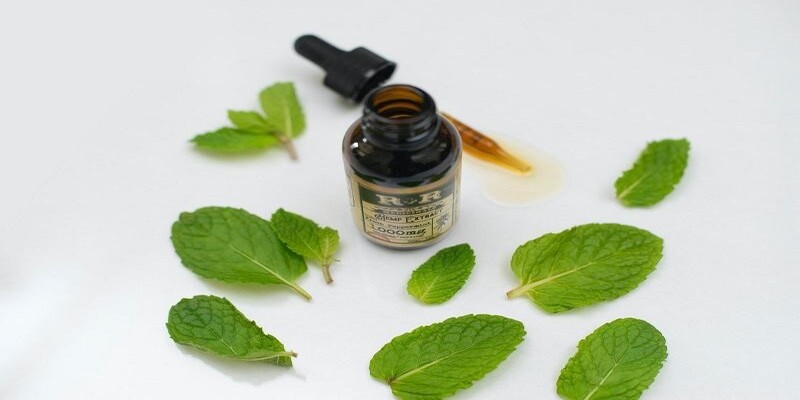The Amazing Health Perks of Turmeric and Curcumin: What You Should Know
Oct 30, 2023
Turmeric, a golden-hued spice used extensively in various cuisines around the world, is not just a kitchen staple. Beyond its culinary uses, it's hailed for its vast medicinal properties. Central to these benefits is a compound named curcumin.
What Are Turmeric and Curcumin?
- Turmeric: Originating from the root of the Curcuma longa plant, turmeric is a brilliantly vibrant yellow-orange spice. It's a staple in many global cuisines and is especially prevalent in dishes such as curry. When you come across fresh turmeric, you might notice its striking resemblance to ginger in terms of its shape. However, once you cut it open, its distinct color and its unique, earthy flavor set it apart.
- Curcumin: An active components of turmeric is curcumin. This compound is essentially the heart of turmeric. Not only is it responsible for bestowing turmeric with its rich yellow hue, but it also carries a plethora of health benefits that have made turmeric the subject of numerous medicinal studies and applications.
1. Anti-inflammatory Properties
Nature's Anti-inflammatory
One of the standout benefits of turmeric and curcumin is their anti-inflammatory properties. Inflammation, in short bursts, is good—it helps the body fight foreign invaders. However, chronic inflammation can become problematic.
Why it matters:
Chronic inflammation plays a significant role in various Western diseases.
Curcumin is potent in battling inflammation at the molecular level.
2. Boosts Antioxidant Capacity
Power Up Your Body's Protection
Curcumin has the ability to enhance the body’s antioxidant enzymes. This means:
- It can neutralize free radicals on its own.
- It stimulates the body's own antioxidant defenses.
Why it matters:
- Antioxidants protect the body from oxidative damage.
- Oxidative damage is believed to be one of the mechanisms behind aging and many diseases.
3. Good for Brain Health
Nourish Your Noggin
Curcumin can boost brain-derived neurotrophic factor (BDNF), a growth hormone that functions in the brain.
Why it matters:
- Many brain disorders have been linked to decreased levels of BDNF.
- This means curcumin could play a pivotal role in delaying or even reversing brain-related diseases.
4. Lowers Risk of Heart Disease
Heartfelt Benefits
One of the fascinating ways by which curcumin benefits the heart is by improving the function of the endothelium, the lining of the blood vessels.
Why it matters:
- Endothelial dysfunction is a significant cause of heart disease.
- Curcumin aids in endothelial function, ensuring your heart stays in tip-top shape.
5. Natural Anti-depressant
Brighten Your Day
There's promising research showing that curcumin can boost serotonin and dopamine levels in the brain.
Why it matters:
- These two chemicals play a crucial role in mood regulation.
- Increasing their levels can assist in battling depressive disorders.
6. Helps with Arthritis
Joint Effort
Thanks to its potent anti-inflammatory properties, curcumin can be a natural remedy for arthritis patients.
Why it matters:
- Arthritis involves inflammation of the joints.
- Curcumin targets inflammation, providing relief.
7. Fights Age-related Chronic Diseases
Age Gracefully
Curcumin impacts several factors known to play a role in heart disease. Its benefits regarding antioxidants and anti-inflammatory effects contribute to its protective role against age-related diseases.
Why it matters:
- Age brings with it a slew of potential health issues.
- Curcumin assists in keeping many of these at bay.

Table: Quick Glance at Curcumin Benefits
Benefit | Why It's Important |
Anti-inflammatory | Combats chronic inflammation linked to diseases |
Antioxidant boost | Protects from oxidative damage & aging |
Supports brain health | Potentially reverses brain-related diseases |
Good for heart | Improves endothelial function |
Acts as an anti-depressant | Increases serotonin and dopamine levels |
Helps with arthritis | Targets inflammation in joints |
Fights age-related diseases | Keeps age-associated chronic diseases at bay |
FAQs
How do turmeric and curcumin benefit brain health?
Curcumin has the ability to boost brain-derived neurotrophic factor (BDNF), a growth hormone that functions in the brain. As many brain disorders are linked to decreased levels of BDNF, curcumin can play a role in potentially delaying or even reversing brain-related diseases.
Why is curcumin considered beneficial for heart health?
Curcumin improves the function of the endothelium, which is the lining of the blood vessels. Dysfunction of the endothelium is a significant cause of heart disease. By aiding in endothelial function, curcumin ensures the heart remains healthy.
In what ways does curcumin support our body's antioxidant capacity?
Curcumin enhances the body’s antioxidant enzymes in two main ways: by neutralizing free radicals directly and by stimulating the body's natural antioxidant defenses. This dual-action helps protect the body from oxidative damage, which is a key factor in aging and many diseases.






